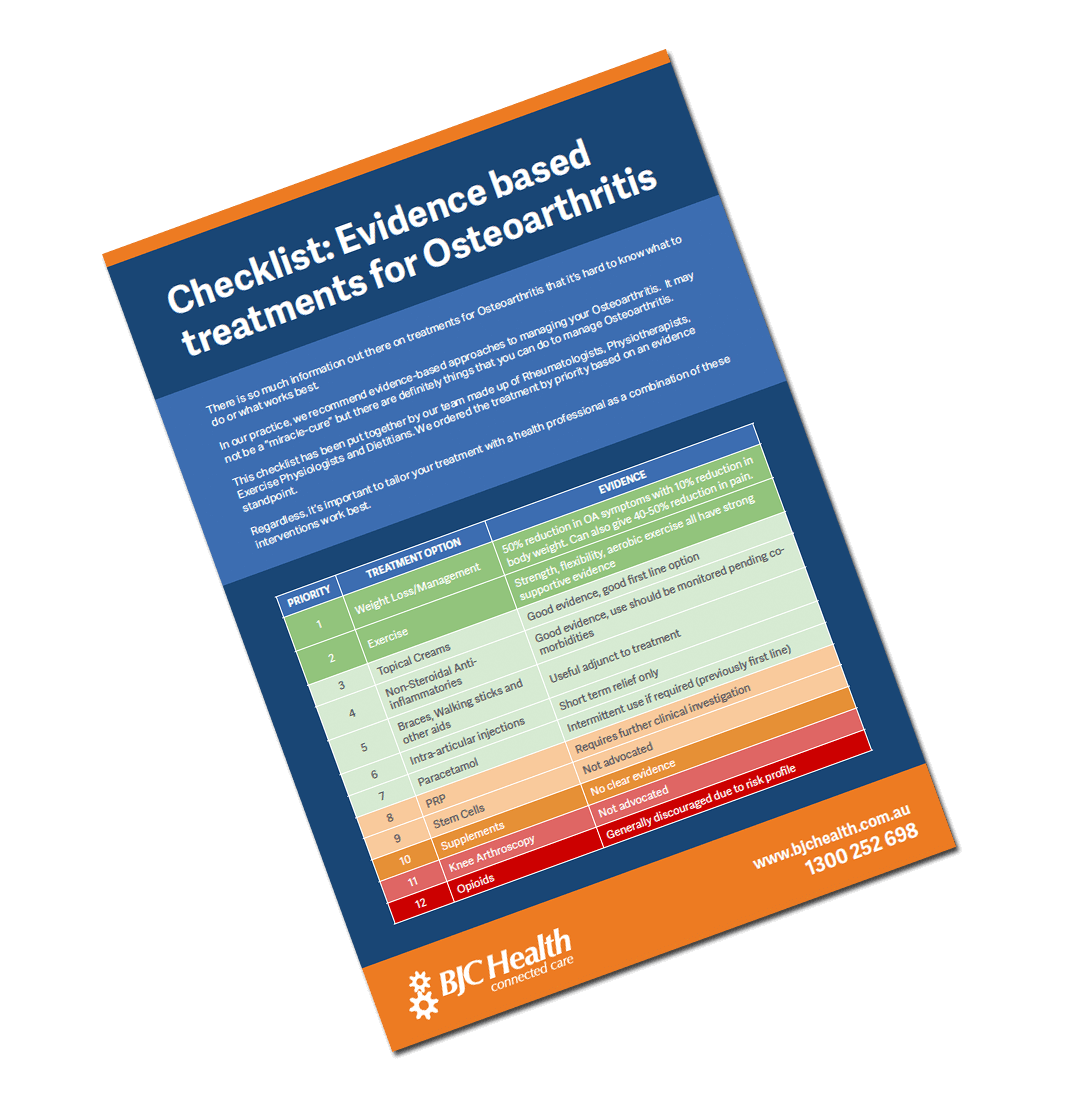Physiotherapy at
BJC Health
Where Individualised Physiotherapy
Meets Connected Care

Welcome to BJC Health
 Why Choose BJC Health?
Why Choose BJC Health?
Personalised One-on-One Care:
In our clinics, you are the sole focus. Our physiotherapists dedicate their full focus to you, providing treatments that are effective and uniquely suited to your needs. This personalised approach facilitates more tailored treatment, and a strong therapeutic relationship, accelerating your recovery.
Specialised Treatment Techniques:
We go beyond traditional methods. Our team is adept in advanced techniques like dry needling, myofascial release, and corrective exercises, tailored to alleviate your specific pain and mobility issues. This dynamic approach is key to reducing pain and enhancing your physical health.
Integrated, Multidisciplinary Approach:
Our strength lies in our connected care model. By integrating physiotherapists, rheumatologists, and other health professionals, we offer a holistic care plan. This ensures comprehensive management of various conditions, from injuries to chronic pain, considering all aspects of your well-being.
At BJC Health, we're committed to not just meeting but exceeding your health expectations, providing a level of care that's as unique and individual as you are.
 Our Unique Approach
Our Unique Approach
At BJC Health, our approach to treatment is guided by a philosophy that sees the patient as a whole. We believe in:
Holistic Health Management
Understanding that effective treatment goes beyond addressing symptoms, we focus on your overall wellbeing, including physical, emotional, and lifestyle factors.
Evidence-Based Practices
Our physiotherapy treatments are informed by the latest research and best practices in rheumatology and physiotherapy.
Empowering Education
We equip you with the knowledge and tools to take an active role in managing your health, fostering independence and confidence in your health journey.
Our approach is not just about reducing pain; it's about empowering you to lead a healthier, more fulfilling life.
Meet the Team

Low Back Pain:
A common ailment, low back pain can stem from various causes, including muscular strains, disc injuries, and postural issues. Our physiotherapists employ a range of techniques, from manual therapy to targeted exercise programs, to alleviate pain and strengthen the lower back and core muscles.

Hip Pain:
Hip pain can be due to arthritis, injuries, or overuse. We focus on identifying the root cause of the pain and implementing a personalised treatment plan, which may include joint mobilisation, strengthening exercises, and pain relief strategies.

%202.webp)
%20(1)-1.jpeg?width=1280&height=854&name=XHxYrKXw%20(1)%20(1)-1.jpeg)
%20(1).webp?width=1280&height=854&name=b0T8VSYA%20(1)%20(1).webp)
Integrated Health Programs
Location and Opening Hours
Parramatta
Level 1, 17-21 Hunter Street
Paramatta, NSW 2150
+61 2 9890 7633
Opening Hours:
Monday - Friday: 7:30am-7pm
Saturday: 8am-1pm
Find out more
Chatswood
Suite G5B, Ground Floor, 7 Help Street
Chatswood, NSW 2067
+61 2 9413 2979
Opening Hours:
Monday - Friday: 7:30am-7pm
Saturday: 8am-1pm
Find out more
Health Funds Accepted
Book an Appointment Now
Or
Call Parramatta on +61 2 9890 7633 / Call Chatswood on +61 2 9413 2979

